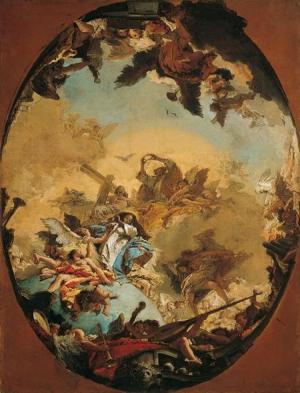Bygone Beliefs: Being a Series of Excursions in the Byways of Thought
Nonfiction, Religion & Spirituality, New Age, History, Fiction & Literature| Author: | Herbert Stanley Redgrove | ISBN: | 9781613102190 |
| Publisher: | Library of Alexandria | Publication: | March 8, 2015 |
| Imprint: | Language: | English |
| Author: | Herbert Stanley Redgrove |
| ISBN: | 9781613102190 |
| Publisher: | Library of Alexandria |
| Publication: | March 8, 2015 |
| Imprint: | |
| Language: | English |
SOME CHARACTERISTICS OF MEDAEVAL THOUGHT IN the earliest days of his upward evolution man was satisfied with a very crude explanation of natural phenomena—that to which the name "animism" has been given. In this stage of mental development all the various forces of Nature are personified: the rushing torrent, the devastating fire, the wind rustling the forest leaves—in the mind of the animistic savage all these are personalities, spirits, like himself, but animated by motives more or less antagonistic to him. I suppose that no possible exception could be taken to the statement that modern science renders animism impossible. But let us inquire in exactly what sense this is true. It is not true that science robs natural phenomena of their spiritual significance. The mistake is often made of supposing that science explains, or endeavours to explain, phenomena. But that is the business of philosophy. The task science attempts is the simpler one of the correlation of natural phenomena, and in this effort leaves the ultimate problems of metaphysics untouched. A universe, however, whose phenomena are not only capable of some degree of correlation, but present the extraordinary degree of harmony and unity which science makes manifest in Nature, cannot be, as in animism, the product of a vast number of inco-ordinated and antagonistic wills, but must either be the product of one Will, or not the product of will at all. The latter alternative means that the Cosmos is inexplicable, which not only man's growing experience, but the fact that man and the universe form essentially a unity, forbid us to believe. The term "anthropomorphic" is too easily applied to philosophical systems, as if it constituted a criticism of their validity. For if it be true, as all must admit, that the unknown can only be explained in terms of the known, then the universe must either be explained in terms of man— i.e. in terms of will or desire—or remain incomprehensible. That is to say, a philosophy must either be anthropomorphic, or no philosophy at all. Thus a metaphysical scrutiny of the results of modern science leads us to a belief in God. But man felt the need of unity, and crude animism, though a step in the right direction, failed to satisfy his thought, long before the days of modern science. The spirits of animism, however, were not discarded, but were modified, co-ordinated, and worked into a system as servants of the Most High. Polytheism may mark a stage in this process; or, perhaps, it was a result of mental degeneracy
SOME CHARACTERISTICS OF MEDAEVAL THOUGHT IN the earliest days of his upward evolution man was satisfied with a very crude explanation of natural phenomena—that to which the name "animism" has been given. In this stage of mental development all the various forces of Nature are personified: the rushing torrent, the devastating fire, the wind rustling the forest leaves—in the mind of the animistic savage all these are personalities, spirits, like himself, but animated by motives more or less antagonistic to him. I suppose that no possible exception could be taken to the statement that modern science renders animism impossible. But let us inquire in exactly what sense this is true. It is not true that science robs natural phenomena of their spiritual significance. The mistake is often made of supposing that science explains, or endeavours to explain, phenomena. But that is the business of philosophy. The task science attempts is the simpler one of the correlation of natural phenomena, and in this effort leaves the ultimate problems of metaphysics untouched. A universe, however, whose phenomena are not only capable of some degree of correlation, but present the extraordinary degree of harmony and unity which science makes manifest in Nature, cannot be, as in animism, the product of a vast number of inco-ordinated and antagonistic wills, but must either be the product of one Will, or not the product of will at all. The latter alternative means that the Cosmos is inexplicable, which not only man's growing experience, but the fact that man and the universe form essentially a unity, forbid us to believe. The term "anthropomorphic" is too easily applied to philosophical systems, as if it constituted a criticism of their validity. For if it be true, as all must admit, that the unknown can only be explained in terms of the known, then the universe must either be explained in terms of man— i.e. in terms of will or desire—or remain incomprehensible. That is to say, a philosophy must either be anthropomorphic, or no philosophy at all. Thus a metaphysical scrutiny of the results of modern science leads us to a belief in God. But man felt the need of unity, and crude animism, though a step in the right direction, failed to satisfy his thought, long before the days of modern science. The spirits of animism, however, were not discarded, but were modified, co-ordinated, and worked into a system as servants of the Most High. Polytheism may mark a stage in this process; or, perhaps, it was a result of mental degeneracy















